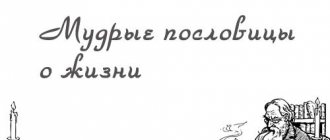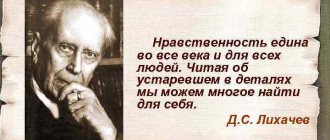The history of China itself is imbued with deep knowledge of the world and the human soul. Philosophical movements that were formed hundreds of years ago were long ahead of their time, and reveal their essence only to those who are capable of deep knowledge. The advice, phrases and observations that the Chinese sages made have been tested for centuries and have proven their validity.
Chinese Quotes and Phrases about Life
Chinese folk wisdom is not always pleasant, but it is always right. So in this case:
An erroneous move with a pawn and the game is lost.
This statement teaches a person to pay more attention to the little things that accompany each of the undertakings. Sometimes people think that by focusing on a specific task, they can achieve success while ignoring the underlying details. But in life it often happens that a small mistake leads to the collapse of great achievements.
A simple look at the life of the Chinese people allowed us to notice:
Don't hold on to what's going away. And don't push away what comes.
It often happens that people cannot accept what contradicts their life views or goals. Therefore, they try to be the first and the best in everything. They communicate with people who do not value them, and even realizing this, they try to maintain the connection that once connected them.
You need to be prepared for changes if they are inevitable, and even if they are unpleasant.
The following Chinese aphorism can become a constant companion for anyone looking for their path.
Learn to find joy in what you do, and then happiness itself will come to your home.
Having learned to live with this thought, you can change your gray life and make it bright and full, the main thing is not to get hung up on problems.
About will
The following Chinese folk wisdom, although cruel, shows the complexity and unkindness of the world around us.
Your parents gave you life, everything else is in your hands.
This is a direct call to develop willpower and determination. If a person does not decide to achieve everything in this life, no one will give it to him. Everyone is their own enemy and friend, the main thing is to learn to fight the first and listen to the second.
About parental love
A family truth that every parent must learn in order to raise a person ready for life in this world.
For a mother hedgehog, her children's needles are softer than cotton.
Often parents do not notice grains of sand and even logs in their child’s eye. This happens because of strong love. Although the intentions of an adult are always filled with benevolent impulses, in the end this can lead to sad consequences.
About noble people from dysfunctional families
A famous Chinese quote that opens the eyes of overly prejudiced people.
And a noble phoenix may be born in a crow's nest.
These words suggest that if a person was born in unfavorable conditions, in an indecent society or poverty, he can still become a great and noble person. People must realize that society influences the individual, and this relationship is mutual. You shouldn’t look down on someone, no matter what society they were brought up in.
About extra words for understanding
Often, a small sentence of a few words, after careful consideration, is filled with depth and meaning. The following quote says a lot about the upbringing and nature of the human soul:
If a person does not want to listen to one word, then he will not listen to a thousand.
The real-life application of these words relates more to conveying one’s position to someone who acts contrary to the speaker’s expectations. It is not uncommon for a grown man or a decrepit old man to try to direct a young guy to worthy deeds, but he does everything in his own way. You shouldn’t waste your energy on something that won’t take root in a young head, repeat it at least a thousand times.
You can also project it onto a married couple. The wife scolds her husband because he constantly goes fishing instead of taking care of home problems. They live like this for years, and still she tries to prove the correctness of her point of view, and he turns a deaf ear.
Symbolism
The Chinese associate bamboo with many symbols.
- Longevity
Bamboo stems remain green all year round, even in winter, when the rest of the vegetation sheds its leaves and falls into suspended animation. They can withstand any weather, at any age, therefore they represent long years of life, many years of perseverance, old age filled with happiness and health.
- The goodwill of sons
Xiao is what the followers of Confucius call respect and virtue on the part of sons, children and younger generations in general.
Portrait of Confucius
- Emptiness
The empty cavity inside the stem is associated with emptiness, liberation from materiality - one of the main concepts of Buddhism, Zen and Taoism.
- Mood and state of a person
The plant lives in any weather conditions: rain, heat, cold, hurricane, light breeze, snow, dewy morning, fog, dawn rays and sunset. It looks different every time. It’s the same with a person - he undergoes changes outside and inside, appearance and mood may change, but he must withstand sorrows and joys.
- Strength of body and spirit
The Chinese like bamboo for its qualities: strength, durability, unbreakability, constancy, sustainability. A person should also have such characteristics by training physical and mental endurance.
- beauty
We are talking about beauty both external and internal. They compare each part of the plant to the human features that make it beautiful. Branched powerful roots - power, a trunk rushing upward - determination, a hollow stem - modesty, external purity - purity.
- Happiness and Spiritual Truth
The stem, constantly striving upward, is associated with eternal love, spiritual growth, the desire for power, a faithful companion and a family life full of health, prosperity and harmony.
- Noble husband
When Chinese women dream of a good husband, they imagine a man endowed with all the qualities of bamboo - strong, courageous, persistent, strict, noble. Like him, the ideal man should be flexible but unbreakable, should always strive to grow. The simple appearance of the plant symbolizes the economy and modesty of the chosen one.
- Winter
Bamboo grows even in winter, which is why, together with pine and plum trees, it is called a friend of winter.
Bamboo forest in winter
- Harmony
In the Celestial Empire, bamboo is a wonderful personification of the harmonious relationship between people and natural forces.
Sun Tzu's wisdom on achieving goals
The statements of the great Chinese philosophers, politicians and military leaders are very popular, since they have gone through a difficult life path and know the value of their words and actions. In addition, based on their example, one can draw conclusions about the correctness of the things they are talking about.
One such thinker is the wise Chinese general and philosopher Sun Tzu. His intellectual works and parables were aimed at the effective use of available forces and resources. He is the author of the legendary book “The Art of War,” which will be useful reading for every boss and motivated person.
The following statement has become very popular:
A noble stallion will not cover a distance of 1000 li. But if you ride even on a decrepit nag, you can do it, the only thing you need is time and constant movement.
The depth of this ancient Chinese saying shows the rich life experience of the thinker. He was able to tell in two sentences what modern thinkers write in entire books. Namely, it is not talent or wealth that becomes the reason for the success of strong people. Perseverance plays a big role, which will push you to take small steps every day on the way to achieving a big goal.
Many modern writers use this idea in motivational speeches, parables and life-affirming books.
The need to maintain balance
The following short ancient Chinese wisdom, like the previous one, shows a person how he can improve his life by bringing it into balance.
If you constantly act cruelly, sooner or later you will get into trouble. And if you are soft and kind all the time, you will get into big trouble.
This Chinese saying says that if you are tough all the time, you can eventually stumble and everything that you gave to this world will come back to you. But if you are flexible all the time and forgive everything, you can become a beast of burden. In everything you need to maintain balance, be strict, but merciful.
Heritage of China
There are 1,200 known species of the plant called “common bamboo” in the world. They grow in the southern continents of the planet: in African, South American, Australian lands and, of course, in Southeast Asia.
At the same time, the record holder for the area of bamboo thickets is China. A third of all known species grow here - over 400. There is especially a lot of it in the south of the famous Yangtze River, as noted by numerous tourists who come here.
Yangtze River
Bamboo forests are mostly located in the south of the Middle Kingdom, namely in the provinces:
- Sichuan;
- Anhui;
- Fujian;
- Jiangsu;
- Chongqing;
- Zhejiang;
- Hunan;
- Jiangxi;
- Guangdong;
- Guangxi Zhuang.
Aphorisms of Confucius
This man's life is filled with great things. His teachings are often compared to real religion. The central ideas of his wisdom are the concepts of morality, ethics and the actions of a person in relation to his neighbor.
His famous, albeit short, statement reads:
Don't do to your neighbor what you don't want him to do to you.
These words had such a strong impact on the minds of his students and followers that it was proposed to build a state based on these principles.
The life of Confucius was filled with not the most pleasant events. Although he was born into a wealthy family in 551 BC, due to the turbulent political situation, he had to face hunger and hard work at a young age. He worked wherever he could in order to feed himself. After some time, he found his purpose. He was an excellent teacher who was listened to and respected. Over time, he opened a private school of Confucianism for people of all social status.
The Long Road to Wisdom
Confucius speaks about the need to go your own way, making mistakes and not retreating:
It takes time for water to polish a stone. In order for a person to polish a stone, he needs will and time.
You can't gain knowledge or skill in one second, you can't just be someone. All paths in life must be passed, but how a person will deal with life’s difficulties is his business.
Vision of good and evil
A large number of the thinker’s works are filled with discussions about good and evil. About how to act in a given situation. Many thoughts in some areas coincide with Christian biblical teachings, but in others they are completely opposite to them. Thus, Christians cannot answer what a person should do with the resentment or bitterness that lurks in his heart. The Chinese thinker very clearly distinguished between justice and impunity.
The words sound contradictory:
If you do too many good deeds, then there may be no room left for all the bad things.
On the one hand, this proverb says that anyone who wants to be truly good must do good deeds tirelessly. But if we rely on the fact that there must be a balance in everything, then sometimes you need to act harshly and even cruelly. It is not necessary to forgive the offender, you need to teach him a lesson, otherwise he will commit evil again.
About the nobility of the soul
He says the following about such a quality of human nature as nobility:
A noble Chinese is friends with his neighbors, but lives on his own; a lowly one lives with his neighbors, but is not friends.
This suggests that the first one respects his loved ones, but does what he thinks is right, and the second one does what is expected of him, but these people are not important to him.
About love, man and woman, parents and children, friends
He made a very interesting remark about the family side of the life of every Chinese.
It is difficult to be in the company of women and vile people for a long time; when approaching, they become arrogant, and when moving away, they begin to hate.
Difficult to understand, but still a powerful Chinese saying.
About complex vicissitudes
The philosophy of Confucius says that there is no greater value for a person than knowledge.
You need to live in such a way that you are always looking for new knowledge and are afraid of losing it.
This can be either life experience or wise words from a father.
Success and achieving happiness
The thinker said the following about how not to deviate from the path towards your goal and find happiness:
If they spit in your back, rejoice, you are ahead.
A subtle and witty statement that is immensely exploited by motivational books.
The meaning of experience, truth and human qualities
He said the following about right intentions and the desire to act justly:
You can be a good person, you just have to really want it.
This suggests that it is not uncommon for those who do the right thing to cause chaos with their thoughts for the sake of which the action was performed.
About life
There are things that cannot be combined or grouped. But they can be explained.
Sometimes a person notices a lot, but does not see the main thing.
This expression is filled with different meanings. It suggests that it is not always possible to predict the result of your actions.
About work and art
The correct distribution of roles can be learned from the following quote:
The main thing is that the ruler is a ruler, the builder is a builder, the father is a father, and the son is a son.
If a person takes on a certain task, then he must do what is necessary, otherwise it will be bad not only for him.
Meaning
Residents of China respect and love bamboo, if not to say idolize it. Hundreds of plant species become national pride, as well as a muse and a source of inspiration for people of art, so it also has great cultural significance for the Chinese.
Writers composed poems about him and wrote entire prose treatises. Poets often called him nothing more than “master.”
The most famous treatise was called “On Bamboo”. It was written back in the 3-4 centuries and contained a description of the types and methods of use.
Mountains and bamboo, Chinese painting
Prose writer Wen Zhenheng, who lived in the 16th and 17th centuries, wrote the work “Things that Delight the Eye,” in which, of course, he could not ignore bamboo. He advised how to plant bamboo groves and decorate them: there must certainly be a stream inside, through which several decorative bridges must be thrown.
Under the thickets, it’s good to set up a place to relax with stone benches, or even a place where you can feel like a hermit, spreading out on a mat or on the bare ground with your hair down. Wen Zhenheng shares the secret that there are no needles, cones, or leaves.
The beauty and grace of bamboo are also reflected in painting. It could take artists years to hone their skills and perfect their lines. One of the most famous was Wen Tong, who worked back in the Song Dynasty, in the 11th century.
Many artists have noticed that its intertwined stems are very similar to hieroglyphs.
Application
The scope of bamboo in China is incredibly wide. Everything you can imagine is made from it.
Scientific discoveries have been associated with bamboo plants since ancient times. For example, back in the Shang Dynasty - which is 16-11 centuries BC - a bamboo drill was invented. Around the same time, an irrigation system and the first running water were invented using bamboo stalks.
Here's where else these versatile plants are used:
1. Food
Young shoots that have just emerged, as well as seeds resembling oat grains, are used for food. The fluffy leaves are removed, and the shoots are subjected to heat treatment - this way the characteristic bitter taste disappears.
Previously, seeds were eaten only during times of severe famine, because bamboo flowering was a rare occurrence and there were few seeds. This is where the belief arose that if bamboo blooms, there will be famine.
2. Paper
During the era of the rulers of the Han Dynasty, at the turn of our era from the last one, paper was invented, which was bamboo sheets divided into equal parts. They were fastened with ribbons or animal tendons - this is how books were made.
Today, paper from the Middle Kingdom also includes bamboo. It is also used in the manufacture of canvases for artists.
3. Construction
Flexible, light, but strong trunks were used in ancient times to build bridges, pipelines, water wheels, transport, scaffolding and even houses. The building of one Chinese bank in Hong Kong, made of bamboo, is especially popular.
Bank of China building
It was designed by an architect named Yu Ming Pei. The height of the 70-story giant is 315 meters. The base consists of bamboo, it is diluted with glass walls, and the frame is supported by only four steel supports - one in each corner.
The masterpiece of architecture, built in the spirit of expressionism, has been standing firmly for many years, despite the elements constantly raging in Hong Kong in the form of typhoons and earthquakes.
The ancient Chinese used bamboo as a measure of length and volume.
4. Gardening
In the Chinese garden, bamboo is used directly as a plant - low-growing and variegated species are better suited for this, and also as a decorative element - bridges, stairs, supports, frames and other exterior items are made from it.
5. Household items
Products from this plant are widely used in the home, interior, everyday life and especially in the kitchen.
These include:
- furniture;
- hats;
- baskets;
- mats;
- Food sticks;
- fabric and clothing;
- wipes for washing dishes;
- dishes;
- curtains;
- chests, caskets;
- painting brushes;
- umbrella handles, canes, fishing rods, ski poles.
6. Musical instruments
Bamboo trunks are used to make not only wind instruments, such as the Chinese flute - dizi, but also national string and percussion instruments - erhu, zheng, sheng.
7. Weapons
This includes arrows, guns, spears, bows, as well as elements for weapons - arrowheads, knife handles.
8. Medicine
The juice contained in the stems of some species, called tabaxir, is used for medicinal purposes. It is used by those suffering from cough, asthma, and sexual disorders. By the way, it is also used as a polish.
Previously, thin syringe needles were made from young plants.







